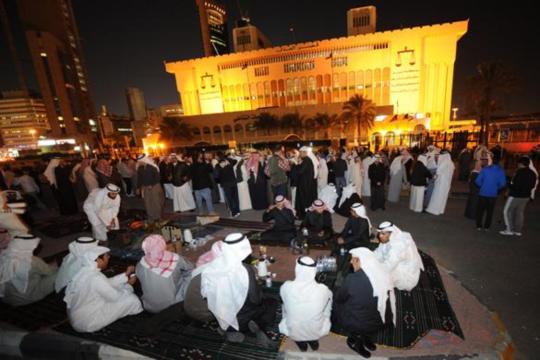
Aiming to defuse the political crisis that has been raging in the country for about two weeks, the Emir of Kuwait, Sheikh Sabah al-Ahmad al-Jaber Al Sabah accepted the resignation of the seventh government of Prime Minister Sheikh Nasser al-Mohammed Al Sabah that came based on unprecedented popular movement and pressure in Kuwait wherein the "Kuwaiti street" entered directly into the political equation in the kiln of the intense political crisis during the past years that was always limited to, at least ostensibly, the government and symbols of opposition within the national assembly.
This resignation came before a popular rally of 70,000 people in Erada Square erupted to demand the departure of the government under the slogan, "Kuwait has given a word" amidst political suffocation witnessed by Kuwait that constitutes an imminent threat to its future as a state of institutions with leading democratic experience in the region. Perhaps this threat is what enticed some political leaders in the country to demand the implementation of martial law for six months through a necessity decree.